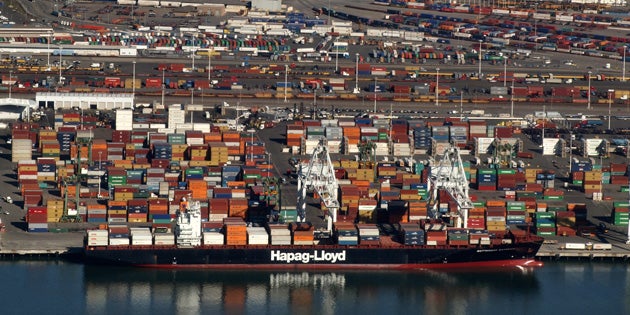For the past several weeks, the flow of cargo at several major West Coast ports has slowed due to disagreements over a labor contract.
 While some U.S. retailers have raised concerns that the issue could affect holiday inventories, Kent Gourdin, a professor and director of the Global Logistics and Transportation Program at the College of Charleston, says the strife isn’t likely to ruin Christmas.
While some U.S. retailers have raised concerns that the issue could affect holiday inventories, Kent Gourdin, a professor and director of the Global Logistics and Transportation Program at the College of Charleston, says the strife isn’t likely to ruin Christmas.
“The bulk of the movement of goods for the holiday shopping season occurs in late summer and early fall, so I think any impacts from a serious freight stoppage now would be felt in the spring,” Gourdin says. “The impact on the average consumer right now is pretty minimal since it takes a while for any effects to filter down through the supply chain.”
RELATED: Learn more about the Department of Supply Chain and Information Management in the School of Business.
At issue is a labor contract between the International Longshore and Warehouse Union and waterfront employers. The sides are negotiating a new contract to replace one that expired at the end of June 2014.
“Working without a contract always raises tensions,” Gourdin says. “In addition, some truckers are striking in LA/Long Beach to protest the improper classification of independent contractors. While neither of these situations has resulted in a port being shutdown, sporadic disruptions have occurred.”
Following a similar contract dispute in 2002, dozens of West Coast ports shut down for 11 days, causing estimated economic losses of $1 billion per day. The 2002 lockout ended when then-President George W. Bush invoked emergency provisions of the Taft-Hartley Act. But President Barack Obama has so far declined to wade into the current dispute.
Port slowdowns are a fact of life in maritime trade, Gourdin says. Because labor contracts must regularly be renewed, tensions are inevitable as both sides vie for better deals. That posturing coupled with the ever-increasing size of container ships creates a fragile situation that can dramatically disrupt world commerce.
“The bottom line is that more than ninety percent of global trade moves via the maritime industry,” Gourdin says. “In today’s world, there is simply no viable alternative.”





